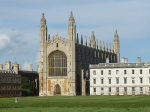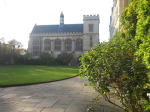
Culture
-
 Dutch Eurovision contestant Joost Klein disqualified after backstage incident
The Dutch artist Joost Klein has been disqualified from the Eurovision Song Contest following a backstage incident, as reported by Swedish police after a female member of the productionRead More...
Dutch Eurovision contestant Joost Klein disqualified after backstage incident
The Dutch artist Joost Klein has been disqualified from the Eurovision Song Contest following a backstage incident, as reported by Swedish police after a female member of the productionRead More... -
 King Charles assumes historic patronage ties to monarchy spanning over 200 years
In 2022, Buckingham Palace announced a comprehensive review of all royal patronages. Following the passing of Queen Elizabeth II, nearly 500 charities and organizations found themselvesRead More...
King Charles assumes historic patronage ties to monarchy spanning over 200 years
In 2022, Buckingham Palace announced a comprehensive review of all royal patronages. Following the passing of Queen Elizabeth II, nearly 500 charities and organizations found themselvesRead More... -
 Homes England pledges £120,000 investment in Northstowe community initiatives
Homes England, the governmental body overseeing housing and urban revitalization efforts, has unveiled plans to allocate £120,000 in grant funding to support community-driven initiativesRead More...
Homes England pledges £120,000 investment in Northstowe community initiatives
Homes England, the governmental body overseeing housing and urban revitalization efforts, has unveiled plans to allocate £120,000 in grant funding to support community-driven initiativesRead More... -
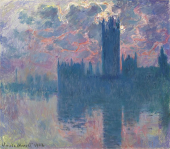 Fake Monet and Renoir paintings detected on eBay using AI
Up to 40 counterfeit paintings, including alleged works by Monet and Renoir, have been identified for sale on eBay, according to research conducted by Dr. Carina Popovici, an expertRead More...
Fake Monet and Renoir paintings detected on eBay using AI
Up to 40 counterfeit paintings, including alleged works by Monet and Renoir, have been identified for sale on eBay, according to research conducted by Dr. Carina Popovici, an expertRead More... -
 Pippa Middleton and James Matthews unveil lodge at Bucklebury Farm
Pippa Middleton and her billionaire husband James Matthews have inaugurated the lodge at Bucklebury Farm Park in Berkshire, offering a venue for parties, events, and Pilates sessions.Read More...
Pippa Middleton and James Matthews unveil lodge at Bucklebury Farm
Pippa Middleton and her billionaire husband James Matthews have inaugurated the lodge at Bucklebury Farm Park in Berkshire, offering a venue for parties, events, and Pilates sessions.Read More... -
 Five British museums nominated for prestigious arts prize
Museums across Skipton, Dundee, Manchester, and London are vying for the esteemed title of Museum of the Year 2024.Read More...
Five British museums nominated for prestigious arts prize
Museums across Skipton, Dundee, Manchester, and London are vying for the esteemed title of Museum of the Year 2024.Read More... -
 Gustav Klimt portrait sells for £25.7 million at Vienna auction
A long-lost portrait by Gustav Klimt, depicting a young woman, fetched a staggering 30 million euros (£25.7 million) at an auction held in Vienna on Wednesday.Read More...
Gustav Klimt portrait sells for £25.7 million at Vienna auction
A long-lost portrait by Gustav Klimt, depicting a young woman, fetched a staggering 30 million euros (£25.7 million) at an auction held in Vienna on Wednesday.Read More... -
 Rishi Sunak: remembering those lost in terror attack
In his Passover message to the Jewish community, Prime Minister Rishi Sunak acknowledges the somber reality that "for too many families, there will be empty seats" at the Seder table thisRead More...
Rishi Sunak: remembering those lost in terror attack
In his Passover message to the Jewish community, Prime Minister Rishi Sunak acknowledges the somber reality that "for too many families, there will be empty seats" at the Seder table thisRead More... -
 Co-op Live: Manchester's new arena opens with high capacity and ambitions
A monumental addition to Manchester's entertainment landscape, the new £365m Co-op Live arena is poised to claim the title of the largest indoor arena in the UK. Nestled beside ManchesterRead More...
Co-op Live: Manchester's new arena opens with high capacity and ambitions
A monumental addition to Manchester's entertainment landscape, the new £365m Co-op Live arena is poised to claim the title of the largest indoor arena in the UK. Nestled beside ManchesterRead More... -
 Brontë birthplace unveils open day prior to renovation
The birthplace of the renowned Brontë sisters is set to welcome visitors for a special glimpse inside before embarking on a significant refurbishment.Read More...
Brontë birthplace unveils open day prior to renovation
The birthplace of the renowned Brontë sisters is set to welcome visitors for a special glimpse inside before embarking on a significant refurbishment.Read More... -
 Taylor Swift's 'The Tortured Poets Department' smashes Spotify record
Taylor Swift's latest album, "The Tortured Poets Department," has shattered Spotify's record for the most-streamed album in a single day, the platform has announced. Not only did Swift'sRead More...
Taylor Swift's 'The Tortured Poets Department' smashes Spotify record
Taylor Swift's latest album, "The Tortured Poets Department," has shattered Spotify's record for the most-streamed album in a single day, the platform has announced. Not only did Swift'sRead More... -
 Historic London pub, linked to Royalty, ravaged by fire: a heartbreaking loss
A renowned London pub, steeped in history dating back possibly to the 16th century, has suffered extensive damage in a devastating fire. The Burn Bullock, a grade II-listed establishmentRead More...
Historic London pub, linked to Royalty, ravaged by fire: a heartbreaking loss
A renowned London pub, steeped in history dating back possibly to the 16th century, has suffered extensive damage in a devastating fire. The Burn Bullock, a grade II-listed establishmentRead More... -
 Salvator Rosa painting stolen from Oxford, recovered in Romania, and returned to UK
A painting valued at EUR 2 million, stolen from an art gallery at Oxford University approximately four years ago, has been recovered in Romania and returned to UK judicial authorities,Read More...
Salvator Rosa painting stolen from Oxford, recovered in Romania, and returned to UK
A painting valued at EUR 2 million, stolen from an art gallery at Oxford University approximately four years ago, has been recovered in Romania and returned to UK judicial authorities,Read More...

British Queen celebrates
Most Read
- Teen held after US woman killed in London stabbings
- Heave-ho Harry! Prince prepares to join the walking wounded in ice trek to North Pole
- Football: Farhad Moshiri adamant Everton deal above board
- "Master of English Style". Interview with Designer Lydia Dart
- Letter to the Financial Times from Lord Mayor Alderman Michael Bear
UK news
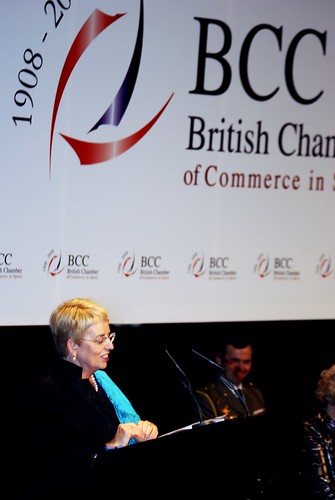
The trade deficit in the UK shrank in March as exports to the US, China and Russia grew strongly, official figures have shown.
The UK's trade deficit on goods and services was £2.7 billion in March, compared to £2.9 billion in February, while the deficit on goods alone was flat at £8.6 billion.
Exports to countries outside the European Union (EU) grew by 12%, driven by chemicals and cars, while the eurozone crisis continued to take its toll as EU exports were flat month on month.
While the deficit shrank slightly, economists said net trade was still likely to have knocked 0.2% off gross domestic product (GDP) growth, putting a dampener on hopes that growth figures for the first quarter of the year will be revised upwards.
Vicky Redwood, chief UK economist at Capital Economics, said: "March's UK trade figures showed a bit of an improvement, although the external sector still looks likely to have dragged on GDP growth in the first quarter overall."
The UK economy shrank 0.2% in the first three months of the year, following a 0.3% decline in GDP in the final quarter of 2011, meaning the country entered a technical recession.
Chancellor George Osborne is relying on a shift in the economy towards the private sector, particularly in manufacturing and exports, to withstand his far-reaching package of public sector spending cuts.
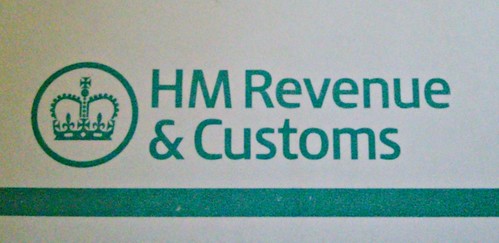
Government plans to withdraw child benefit from parents earning more than £50,000 are "seriously flawed in principle and in practice", and threaten public confidence in the tax system, the official accountants' body has warned.
Just months before the scheduled introduction of the changes next January, the Institute of Chartered Accountants for England and Wales (ICAEW) urged the Treasury to rethink its plans or risk "an operational and reputational disaster for the Government and HM Revenue and Customs" (HMRC).
Labour branded the policy a "complete mess" and called on Chancellor George Osborne to change course. But the Treasury argued that it was unfair to expect households on £20,000 to pay through their taxes for benefits for those earning £80,000 or £100,000, and insisted HMRC is confident the reform can be delivered effectively.
Under plans set out in Mr Osborne's Budget in March, the benefit - worth more than £1,000 a year for families with one child and almost £2,500 for those with three - is to be withdrawn gradually from households with a parent earning more than £50,000. Parents with an income above £60,000 will lose it altogether.
In a briefing paper, the ICAEW warned that this will breach the principles of confidentiality and individual taxation which underpin the tax system. The organisation also said it will undermine the principle of fairness, as families in similar circumstances will be treated differently.
A household with one working parent earning more than £50,000 will lose out while neighbours with two parents earning £49,000 each will continue to receive the benefit in full. The policy will create additional administrative burdens, creating up to 500,000 new self-assessed taxpayers and possibly leading to lower service standards from HMRC, warned the ICAEW.
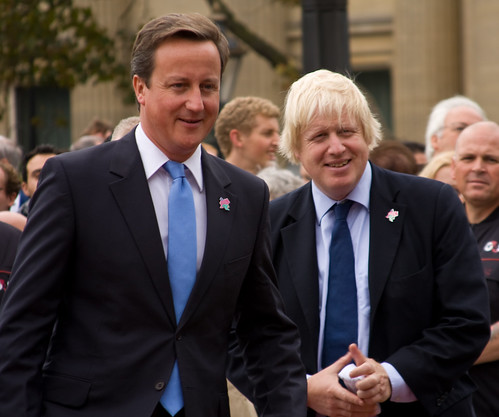
Senior coalition figures are set to begin their fightback following dismal election results that have heaped pressure on the already-straining partnership.
Tensions are mounting as the Conservatives and Liberal Democrats come under attack from their own ranks over the growing public disenchantment with the Government.
Prime Minister David Cameron and deputy Nick Clegg are expected to carry out a joint visit in the coming days as the two-year anniversary of the formation of the coalition, symbolised by the infamous No 10 rose garden press conference, approaches.
They will use that to attempt to drive home the message that the Government is focusing on "jobs, growth and the economy", and restate the basic principles underpinning why the two parties joined forces.
Meanwhile, Chancellor George Osborne has been put forward as the Tory "big beast" to face broadcasters and defend the party in the wake of its election drubbing.
Labour exceeded expectations in England, Scotland and Wales, by gaining 824 seats and winning control over an additional 32 authorities, while 403 Tories and 330 Liberal Democrats fell victim to a cull of coalition councillors.
The High Court has lifted an injunction preventing the removal of the last anti-war protest tent near the Houses of Parliament.
Judges said that it would be "lifted immediately", leaving Westminster Council free to clear Parliament Square of the tent as soon as it is ready.
The injunction had been in place while veteran peace campaigner Maria Gallastegui challenged the legality of new byelaws giving the local authority power to remove tents and sleeping equipment from the road and pavement around the square.
Last week, High Court judge Sir John Thomas, president of the Queen's Bench Division, and Mr Justice Silber ruled the byelaws lawful.
Ms Gallastegui returned to court to ask for permission to appeal to the Court of Appeal on the basis that her case raised issues of general public importance and it was arguable that the High Court had got the law wrong.
The Serious Organised Crime Agency website has been taken temporarily offline after it was targeted by computer hackers.
The distributed denial of service (DDOS) attack - which involves web addresses being hit by a flood of visits - was carried out on Wednesday night, a Soca spokesman said.
The incident did "not pose any security risk to the organisation", he added.
DDOS attacks on the Soca website have previously been linked to the loose-knit international "hacktivist" group Anonymous.
Soca's website has been down since 10pm on Wednesday.
A spokesman said: "The action was taken to limit the impact of a DDOS attack on other clients hosted by our service provider.
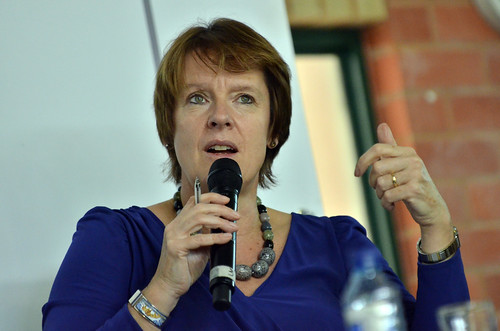
Environment Secretary Caroline Spelman has raised the possibility of standpipes returning to UK streets if the country is hit by a third dry winter in a row.
Mrs Spelman told the BBC's Inside Out programme that while it was "most unlikely" that drought-affected areas would need to use standpipes this year, another dry winter could make it more likely they would have to be brought in.
And while the wettest April on record had been good for the drought situation, she said the heavy rain had not solved the problem - and a wet winter was needed to get things back to normal.
South east, south west and eastern England are in drought along with the Midlands and South and East Yorkshire after two extremely dry winters.
Many areas rely on groundwater for much of their tap water supplies, and the dry winters mean aquifers have not had a chance to recharge when they normally would. Water companies who rely on groundwater for supplies are concerned about what will happen if there is a third dry winter.
Mrs Spelman said: "I'm not deluded into thinking that I can tell you how much rain we are going to get - and it's far too early to tell yet whether we are going to have the wet winter we do need; but whereas it's most unlikely we would have standpipes this year, if we have another dry winter that becomes more likely."
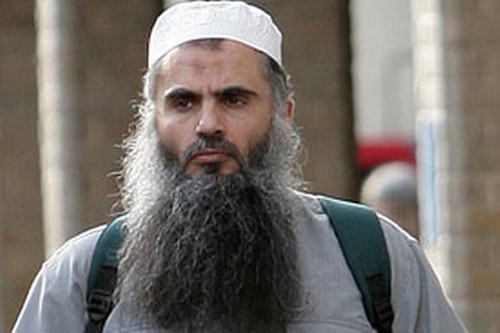
Islamist militants have offered to free a British-South African hostage if London allows radical cleric Abu Qatada to choose a country for his extradition, US monitoring service SITE said.
Al-Qaeda in the Islamic Maghreb (AQIM) also threatened that Britain would "open the door of evil" unto its country and people should it send the imam back to his native Jordan where he faces jail, the report said.
AQIM -- Al-Qaeda's North African franchise -- has been holding Stephen Malcolm, 37, and two other Western men hostage since abducting them last November in the northern Mali desert city of Timbuktu.
Britain has been trying to deport Abu Qatada for more than six years, arguing he is a threat to national security, to Jordan, where the cleric was convicted in 1998 in absentia of involvement in terror attacks.
Videos of the cleric's sermons were found in the Hamburg flat used by some of the hijackers in the September 11, 2001 attacks, while he has also defended killing Jews and attacks on Americans.
The cleric's removal was blocked in January by the European Court of Human Rights, which cited the risk that evidence obtained from torture would be used against him on his return to Jordan.

A purely Tory government would not be pressing ahead with reform of the House of Lords in this parliament, Justice Secretary Ken Clarke admitted.
The Justice Secretary hinted at tensions within the coalition amid reports that at least six Cabinet ministers would prefer to see the changes delayed.
Philip Hammond, Iain Duncan Smith, Michael Gove, Eric Pickles, Owen Paterson and Lord Strathclyde are said to be among senior Conservatives who have voiced doubts.
The party's backbenchers are also threatening a mass rebellion on the issue, with the potential for resignations by several ministerial aides.
Speaking on Sky News' Murnaghan programme, Mr Clarke stressed that he had always been in favour of an elected upper House.
"The existing House of Lords is a curious historical anomaly," he said. "We are ready for democracy, I think. All three political parties were in favour of House of Lords reform in their last manifestos."

US pop diva Lady Gaga arrived in South Korea late Friday, one week before a Seoul performance which will kick off her third concert tour. The singer, wearing a floor-length low-cut white dress, white gloves and a pearl-encrusted mask, blew kisses to fans at Seoul's Gimpo airport who tried to snap her image on smartphones. Her schedule in South Korea for the coming week was unclear and concert organisers Hyundai Card declined to give details. "The Born This Way Ball" tour begins on April 27 at Seoul's Olympic Stadium. From there Lady Gaga will take her hits and extravagant costumes to Hong Kong, Japan, Taiwan, the Philippines, Thailand, Singapore, Indonesia, New Zealand and Australia, and then on to 21 European cities. South Koreans aged under 18 have been banned from the concert after it was rated unsuitable for younger audiences.
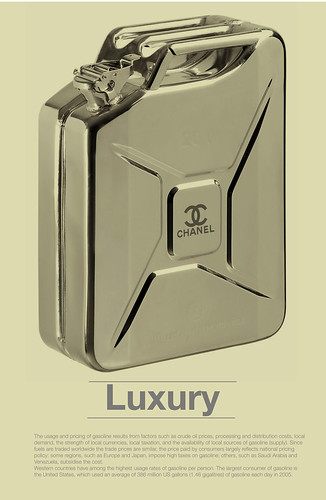
Police closed some petrol stations Thursday to stop panic buying as the government faced criticism for warning motorists to stock up ahead of a threatened strike by tanker drivers.
Retailers said petrol sales were nearly double normal on Wednesday, while there was a surge in sales of jerrycans after a minister advised people to fill them with fuel, in comments he was later forced to retract.
Opposition Labour Party leader Ed Miliband called on Prime Minister David Cameron to apologise after the government issued a string of conflicting messages to motorists.
"The prime minister is presiding over a shambles on petrol. The country is paying the price for the incompetent way he is governing," Miliband said.
Police forces in several areas reported queues at petrol stations.
The county of Dorset said it had told some petrol stations to close temporarily because motorists were behaving "irresponsibly" and causing a danger to others.
"Police are taking action, requesting petrol stations to close temporarily in order to keep traffic flowing. Once the queues have dispersed, the petrol stations may reopen for short periods," Dorset Police said.
Emergency services in London and West Sussex said they had been called out to deal with spillages from people overfilling their vehicles.
The Automobile Association said there were "localised shortages, queues and some profiteering" at petrol stations.
Workers in five oil companies have already voted in favour of industrial action over terms, conditions and safety standards but have not yet set a date for a strike.
Negotiators said talks on the strike would not be held before Monday.
The government has said it is training up army tanker drivers to take over in case a strike goes ahead.
But the government on Thursday repeated its advice to people to keep stocked up with petrol, although it toned down the message after a series of conflicting comments by Cameron and other ministers the previous day.
Energy Minister Ed Davey denied the government was creating panic.
"Our major advice is that people just need to do the sensible thing if they're going into the petrol station, they should get a full tank of petrol, not a half-tank of petrol, and they should top up where necessary," he told the BBC.
The fuel saga hotted up on Wednesday when Cabinet Office minister Francis Maude said that motorists should fill up jerrycans with petrol and keep them in their garages.
Firefighters said his advice was dangerous -- and illegal depending on the size of the cans involved -- and the government retracted Maude's advice on Thursday.
Roads minister Mike Penning said it had been "a mistake by the cabinet minister... He has apologised since".
The government's words failed to assure motorists. Halfords, a motor supplies retailer, said sales of jerrycans had increased by 500 percent from the same time in 2011.











